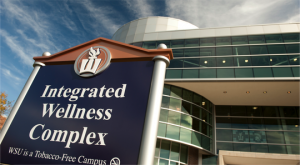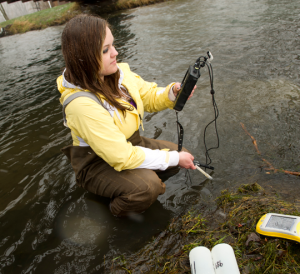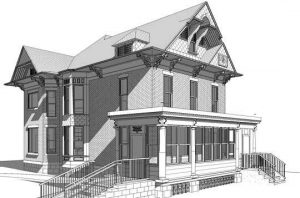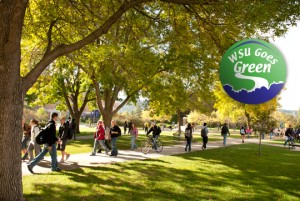April 18, 2012
Energy saving facility upgrades. A new interdisciplinary minor in sustainability management. A popular on-campus bike share program. A partnership with Winona’s largest public and private institutions committed to building a sustainable community.
Responding to initiatives from Winona State University faculty and students, President Judith A. Ramaley signed the American College and University Presidents Climate Commitment in May 2007. The ACUP Climate Commitment provides a framework to focus campus attention on creating a sustainable environment, and commits the university to work towards climate neutrality by 2050.
How is Winona State doing five years later? Following is a brief overview of the university’s efforts towards building a sustainable community. Further detail can be found at www.winona.edu/green.
University Operations
The university completed a study to establish its baseline carbon footprint a year after signing the Climate Commitment. After implementing a number of measures to conserve energy and reduce waste, including replacing vehicles in its motor pool with hybrid cars, WSU partnered with private industry on a $1.7 million Guaranteed Energy Savings Contract to install energy saving upgrades across campus.
Nowhere is the university’s commitment to sustainability more evident than in the Integrated Wellness Complex, which was opened in 2010. The 90,000-square-foot building was designed and constructed from start to finish using green practices, and its energy usage is constantly monitored on a display near its entrance. The IWC is set to achieve LEED Silver or better certification from the U.S. Green Building Council in 2012.
See the Integrated Wellness Complex in detail: www.winona.edu/wellnesscomplex
Academic Curriculum
The faculty brought the Climate Commitment to President Ramaley with an aligned commitment to support sustainability with academic programs, student-faculty research, community outreach, and other learning opportunities. A regional energy summit followed in 2008, along with interdisciplinary, sustainability-focused in programs as varied as Environmental Sciences, Economics, Global Studies, Sociology, Education, and Law and Society.
In 2011, Winona State introduced a minor in sustainability. This interdisciplinary program provides students with an overview of the fundamentals of sustainability while also giving them an opportunity to gain in-depth knowledge in their specific areas of study. Students can select from more than 50 classes ranging from engineering to English.
Watch a KAAL-TV report on the new minor at WSU’s sustainability Facebook page: www.facebook.com/sustainability.at.wsu
Campus Culture
Where once there were gray trashcans, now stand smart blue recycling bins. That’s one obvious sign of the campus community’s growing interest in sustainability. In 2008 Winona State tied for second place in the National Energy Challenge, a student-led competition to determine which colleges and universities could save the most heating and electrical energy. Since then students have established a popular bike share and repair program, a ride board organized through social media, and a one-degree thermostat setback initiative in all campus buildings.
In fall 2012, the university will open its first academic theme house on the northeast corner of campus. The house is being renovated using green building practices and features solar heating panels and a sustainable steel roof. About a dozen students with the shared interest of sustainability will live in the house.
Zipcars are the hottest ride on campus – find out more at: www.zipcar.com/winona
Community Service and Outreach
Sustain Winona is a collaborative effort between Winona State, the City of Winona, Winona County, the Winona Area Public Schools, Cotter High School, Minnesota State College-Southeast Technical, and Saint Mary’s University. The partnership’s is focused on reducing greenhouse emissions through energy conservation, low-carbon energy technologies, and pollution prevention. One of its initial programs is City Shade, a project to restore the tree canopy in Winona with a well-planned, healthy urban forest.
Winona State began offering a new online course, Energy and Sustainable Living, in January. The course is designed for those who want to “green up” their skills and develop an understanding of environmental sustainability. The course was developed with Eagle Bluff Environmental Learning Center, where a hands-on component is held, along with U.S. Fish and Wildlife, Clean Energy Resource Teams, and Winona County Environmental Services.
Find out how to “green up” your skills: http://www.winona.edu/oced





